
Anibare: Nauru's Hidden Coastal Gem
Anibare, located on the eastern coast of Nauru, is a tranquil paradise that offers a unique blend of stunning natural beauty and rich cultural heritage. The pristine Anibare Bay is renowned for its crystal-clear waters and white sandy beaches, making it an idyllic spot for swimming, snorkeling, and sunbathing. The bay is surrounded by lush greenery and dramatic limestone cliffs, providing a picturesque backdrop for a relaxing day by the ocean. Beyond the beach, Anibare is a gateway to exploring the broader island of Nauru. Visitors can immerse themselves in the local culture by visiting nearby villages, where traditional customs and lifestyles are still very much a part of daily life. The area is also known for its vibrant marine life, which can be explored through guided scuba diving tours. For those interested in history, the remnants of World War II installations scattered throughout the island offer a sobering glimpse into Nauru's past. The serene environment of Anibare makes it a perfect escape for those looking to unwind and connect with nature. Whether you're lounging on the beach, exploring the underwater world, or learning about the local culture, Anibare promises a memorable experience that will leave you feeling rejuvenated and inspired.
Local tips in Anibare
- Visit Anibare Bay early in the morning to enjoy the tranquil scenery before the crowds arrive.
- Bring your own snorkeling gear as rentals may be limited.
- Explore nearby villages to experience local customs and traditions.
- Stay hydrated and wear sunscreen, as the tropical sun can be intense.
- Take a guided tour to learn about the island's World War II history.
Anibare: Nauru's Hidden Coastal Gem
Anibare, located on the eastern coast of Nauru, is a tranquil paradise that offers a unique blend of stunning natural beauty and rich cultural heritage. The pristine Anibare Bay is renowned for its crystal-clear waters and white sandy beaches, making it an idyllic spot for swimming, snorkeling, and sunbathing. The bay is surrounded by lush greenery and dramatic limestone cliffs, providing a picturesque backdrop for a relaxing day by the ocean. Beyond the beach, Anibare is a gateway to exploring the broader island of Nauru. Visitors can immerse themselves in the local culture by visiting nearby villages, where traditional customs and lifestyles are still very much a part of daily life. The area is also known for its vibrant marine life, which can be explored through guided scuba diving tours. For those interested in history, the remnants of World War II installations scattered throughout the island offer a sobering glimpse into Nauru's past. The serene environment of Anibare makes it a perfect escape for those looking to unwind and connect with nature. Whether you're lounging on the beach, exploring the underwater world, or learning about the local culture, Anibare promises a memorable experience that will leave you feeling rejuvenated and inspired.
When is the best time to go to Anibare?
Iconic landmarks you can’t miss
Menen Hotel
Explore the serene beauty of Nauru while enjoying your stay at Menen Hotel - the perfect blend of comfort and local charm awaits you.

Nauru Australian Immigration Detention Center
Discover the complexities of immigration at the Nauru Australian Immigration Detention Center, a crucial site for understanding modern human rights issues.
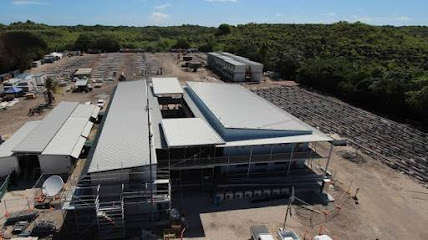
Capelle and Partner
Discover Nauru's vibrant shopping experience at Capelle and Partner, where local culture and essential goods come together in one welcoming destination.
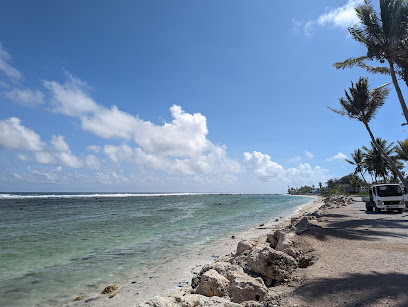
Ewa Lodge
Discover the serene beauty of Nauru at Ewa Lodge, a premier serviced accommodation in Ronave for unforgettable island experiences.
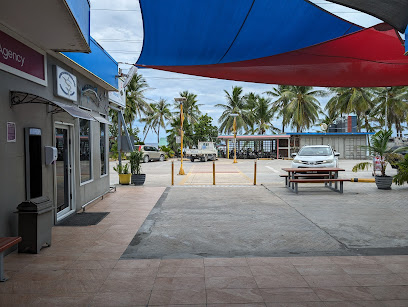
Geography of Nauru
Explore the stunning landscapes and rich history of Nauru, a hidden gem in the Pacific Ocean with breathtaking beaches and diverse marine life.
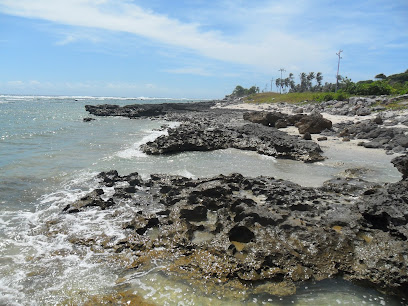
Anabar Beach
Discover the tranquil beauty of Anabar Beach, a pristine paradise in Nauru, perfect for relaxation, swimming, and snorkeling amidst vibrant marine life.
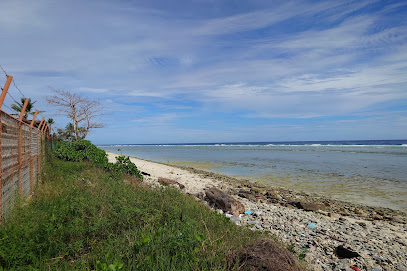
Parliament House
Discover the political heart of Nauru at Parliament House in Yaren, a symbol of governance and architectural beauty.
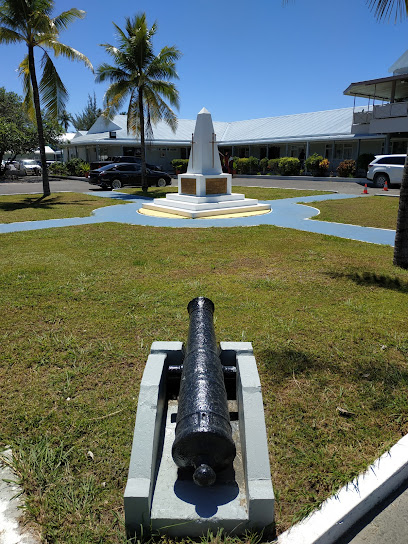
Reef Bar
Experience the tropical charm of Reef Bar in Anibare, Nauru, where refreshing drinks and a vibrant atmosphere await every visitor.
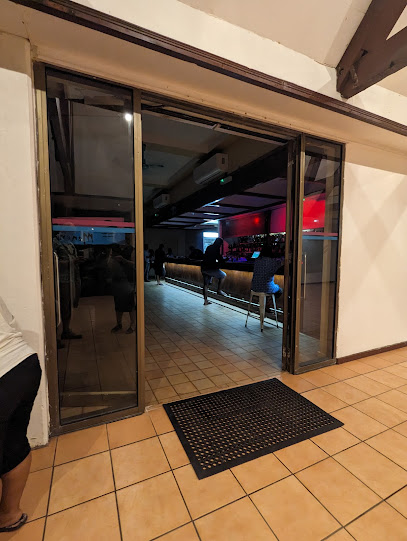
Nauru
Explore the untouched beauty and rich history of Nauru, the smallest island nation in the world, a unique travel destination in the Pacific.
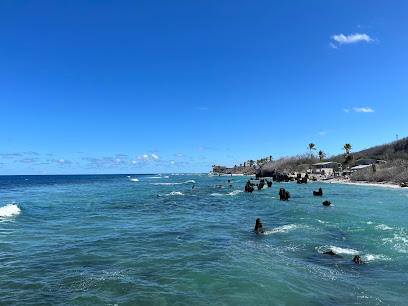
Anibare Bay
Discover the enchanting beauty of Anibare Bay, a tropical paradise in Nauru, where crystal-clear waters and golden sands await your arrival.
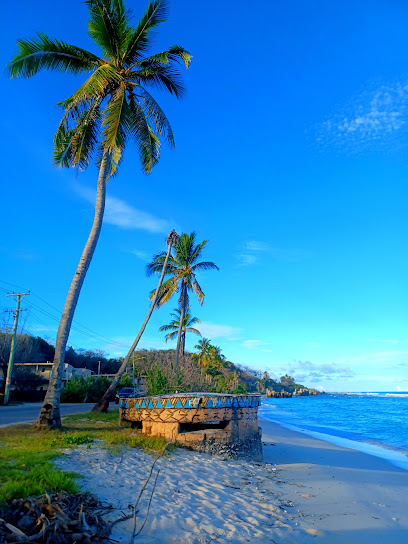
Anibare Boat Harbour Restaurant
Experience the flavors of Nauru at Anibare Boat Harbour Restaurant, where local cuisine meets stunning ocean views.
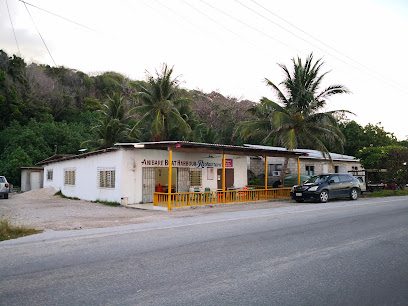
Naoero Museum
Explore the captivating history and culture of Nauru at Naoero Museum, where every exhibit tells a story of resilience and heritage.
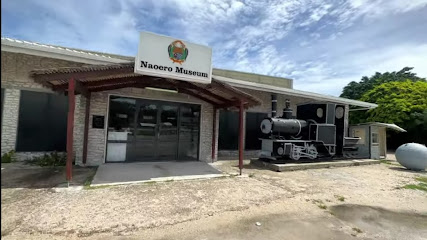
WW2 Japanese Bunker
Explore the WW2 Japanese Bunker in Anabar, a historical landmark offering a deep dive into the stories of wartime resilience and history.
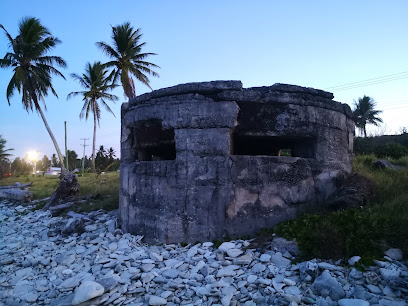
Nauru Tourism Corporation
Discover the beauty of Nauru with expert guidance at the Nauru Tourism Corporation, your essential tourist information center in Boe.
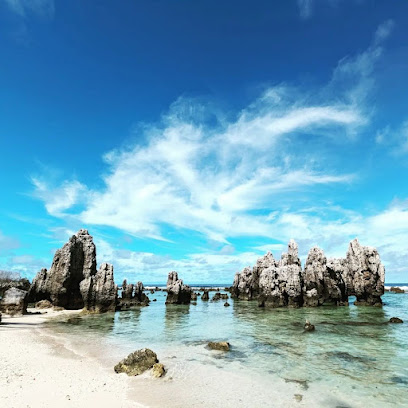
Central Plateau
Explore the breathtaking Central Plateau, a natural sanctuary offering stunning landscapes, rich biodiversity, and a glimpse into local culture.

Essential places to dine
Menen Hotel
Experience unparalleled comfort at Menen Hotel in Ibwenape - your gateway to exploring the beauty and culture of Nauru.

Ewa Lodge
Experience the charm of Ewa Lodge in Nauru – your serene haven amidst stunning landscapes and rich culture.
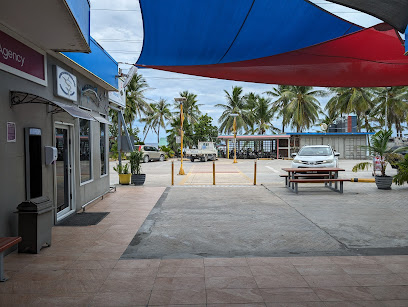
The Bay Restaurant
Discover The Bay Restaurant in Anibare: where exquisite flavors meet stunning ocean views in a serene dining experience.
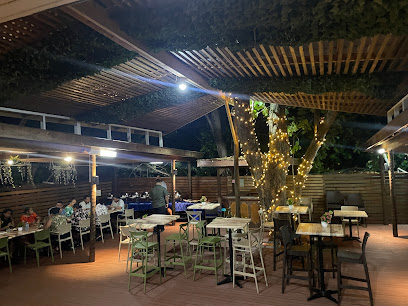
Od-N Aiwo Hotel
Experience the tranquility of Od-N Aiwo Hotel in Boe, Nauru – your ideal retreat for relaxation and adventure on this stunning island.

Jules On The Deck
Discover vibrant nightlife at Jules On The Deck in Nibok - where refreshing drinks meet stunning views and lively entertainment.
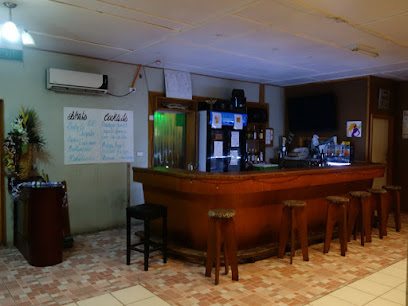
Reef Bar
Discover Reef Bar in Anibare, Nauru – your go-to spot for tropical cocktails, local cuisine, and stunning views.
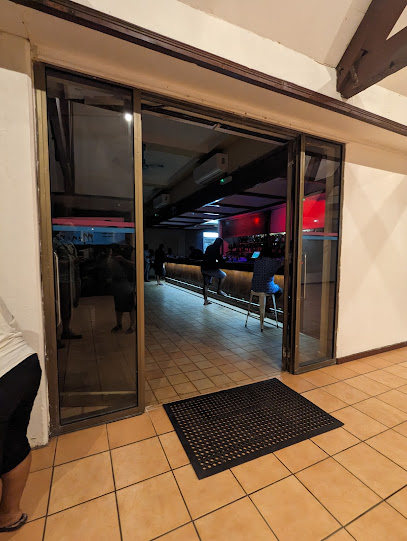
Mr Chippies
Experience the vibrant flavors of Anibare at Mr Chippies – a local favorite restaurant offering fresh seafood and delightful island cuisine.
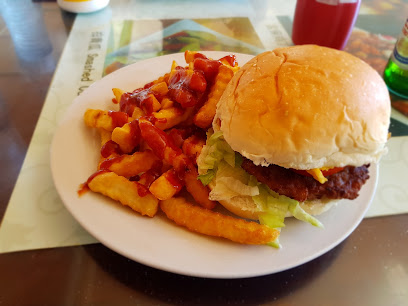
Praises Restaurant
Discover authentic Chinese flavors at Praises Restaurant in Anabar – where every dish tells a story.
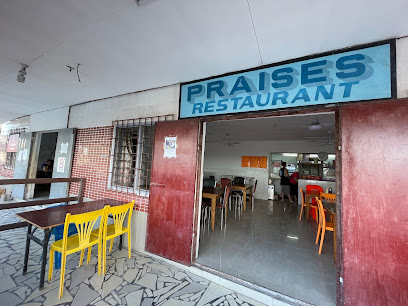
Anibare Boat Harbour Restaurant
Experience exquisite local flavors at Anibare Boat Harbour Restaurant while enjoying breathtaking ocean views in beautiful Nauru.
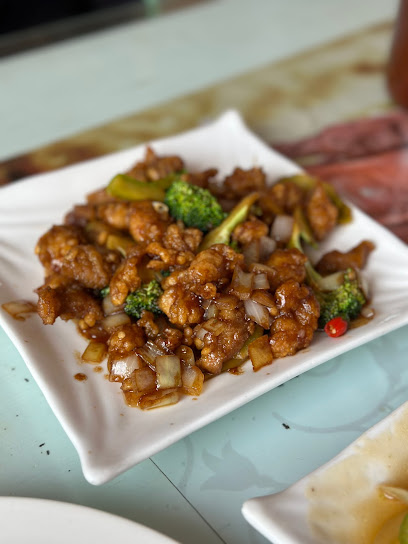
Florrowest Restaurant
Experience authentic local cuisine at Florrowest Restaurant in Boe – where every dish tells a story of flavor and culture.
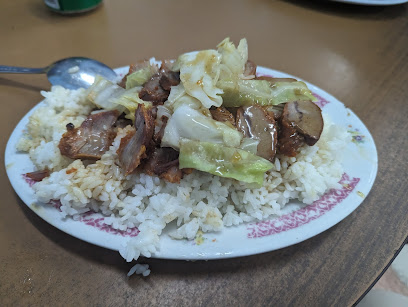
Jullem
Experience authentic Chinese cuisine at Jullem in Anibare – where every dish tells a story of tradition and flavor.
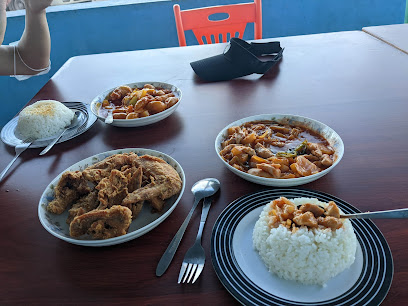
Nauru Fish Market
Explore Nauru Fish Market: A vibrant hub for fresh seafood and local culture on your journey through Nauru's culinary landscape.
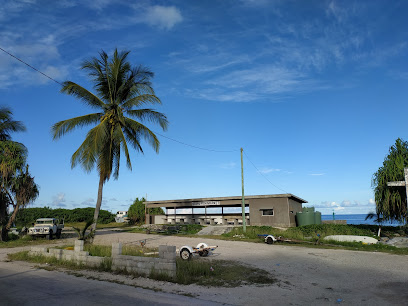
J’ RESTAURANT
Experience authentic Chinese flavors at J’ Restaurant in Arijejen – where every dish tells a story.
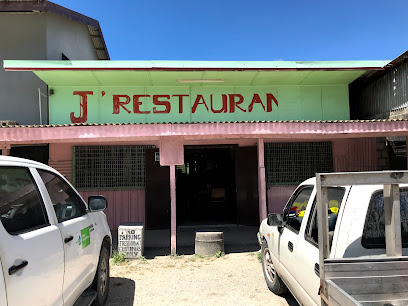
Crystal Kitchen
Experience family-friendly dining at Crystal Kitchen in Anibare - where cleanliness meets delicious local flavors.
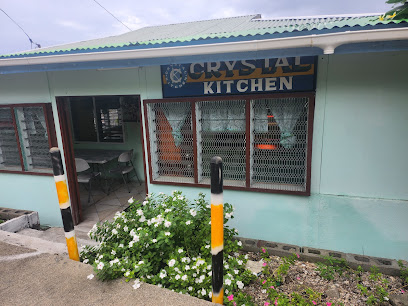
Gabab Restaurant
Experience authentic Chinese flavors at Gabab Restaurant in Boe - where every dish tells a story.
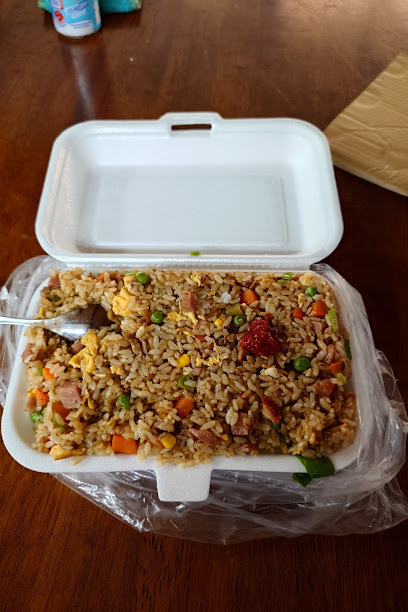
Markets, malls and hidden boutiques
Capelle and Partner
Explore Capelle and Partner Shopping Mall in Nauru for a unique shopping experience filled with local culture, delightful eateries, and vibrant atmosphere.
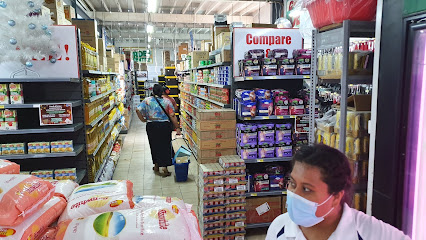
Zombies Store
Discover the unique charm of Zombies Store in Yaren, where local treasures and a quirky atmosphere await every visitor.

Eigigu Minimart
Conveniently located in Anibare, Eigigu Minimart offers local flavors and essentials for tourists exploring this beautiful island.

Rainbow Store
Explore the vibrant Rainbow Store in Baiti, your go-to convenience shop for local goods, snacks, and travel essentials.
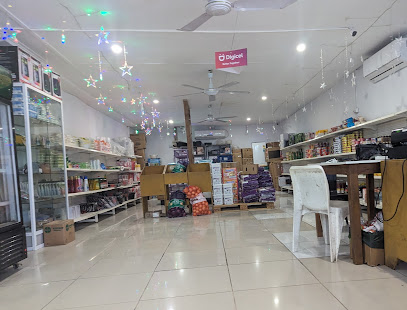
MyStore
Explore the unique flavors of Nauru at MyStore, where local foods and beverages meet friendly service in Yaren.

Nauru Fish Market
Discover the freshest seafood and vibrant local culture at Nauru Fish Market, a must-visit destination for every traveler.
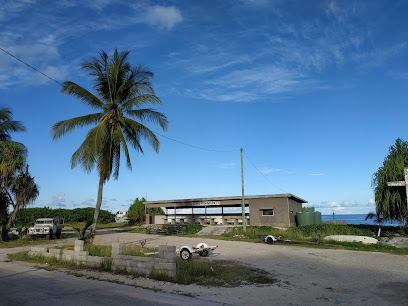
Pick n Save
Discover local flavors and essential goods at Pick n Save, the charming general store in Yaren, perfect for all your travel needs.
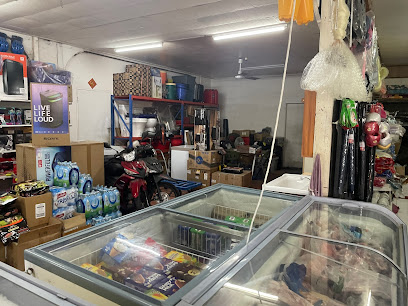
Aredetõ Store
Explore Arenibek with convenience; Aredetõ Store offers snacks, local products, and essentials for every traveler.

Halo Store
Explore Halo Store in Arenibek for unique local crafts, essentials, and a warm shopping experience that reflects the culture of the region.
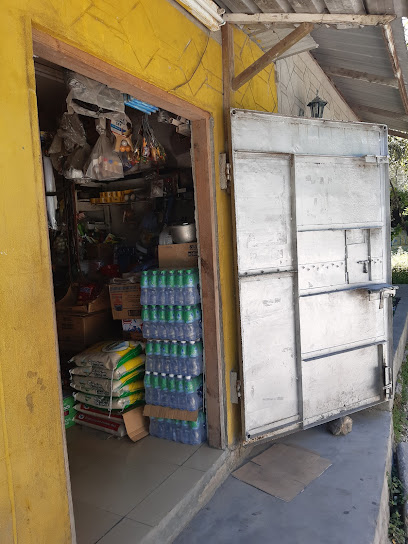
Annerly’s Milkshake
Indulge in the creamy delights at Annerly's Milkshake, Anibare's top spot for irresistible ice cream and refreshing treats.
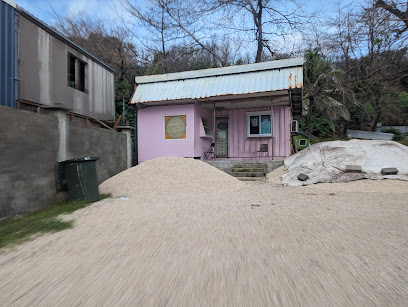
3 in 1 Store
Explore the vibrant 3 in 1 Store in Ronave for unique local products that reflect the culture and artistry of the community.

Paradise
Discover the vibrant fashion scene at Paradise Clothing Store in Boe, where local artistry meets contemporary style for a unique shopping experience.

Bi-rite Store
Discover the convenience of Bi-Rite Store in Ibwenape, where local treats and essential supplies await your exploration.

Bucky Ika Store
Experience the charm of Ronave at Bucky Ika Store, where local culture and unique products come together in a delightful shopping experience.

RJ Store
Explore RJ Store in Arenibek for unique local products, souvenirs, and a taste of regional culture.

Essential bars & hidden hideouts
The Bay Restaurant
Experience the best of Nauruan cuisine at The Bay Restaurant, where fresh seafood meets stunning ocean views.
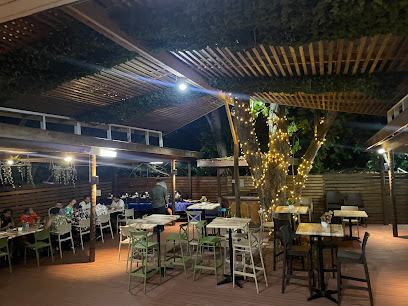
Jules On The Deck
Discover the tranquil atmosphere of Jules On The Deck in Nauru, where refreshing drinks and ocean views create the perfect escape.
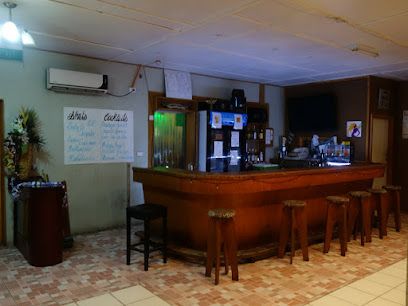
Anabar Beach
Experience the tranquility and natural beauty of Anabar Beach, a hidden paradise in Nauru perfect for relaxation and adventure.
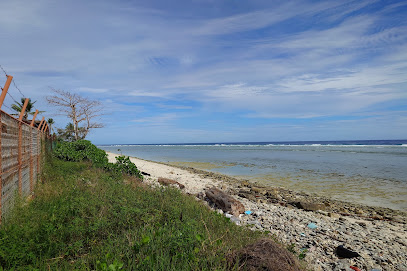
Reef Bar
Experience the vibrant atmosphere and tropical drinks at Reef Bar, the ultimate social hub for tourists in Nauru.
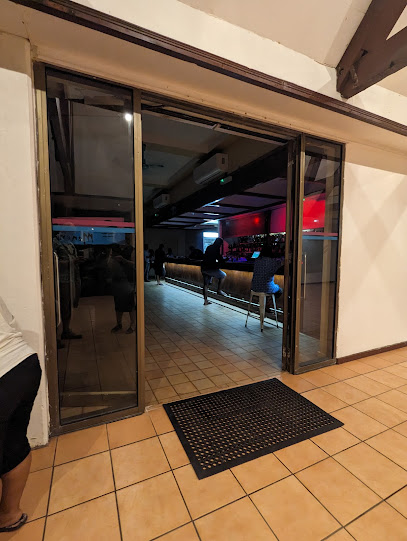
Mr Chippies
Discover Anibare's culinary gem, Mr Chippies, where fresh ingredients meet local flavors in a cozy dining atmosphere.
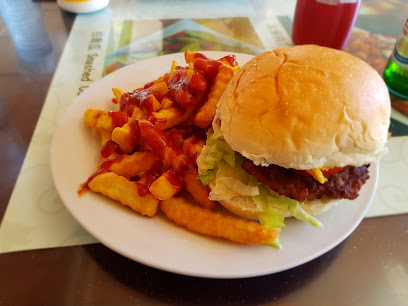
Anibare Bay
Discover the enchanting beauty of Anibare Bay, a tropical paradise in Nauru with stunning beaches and vibrant marine life, perfect for relaxation and adventure.
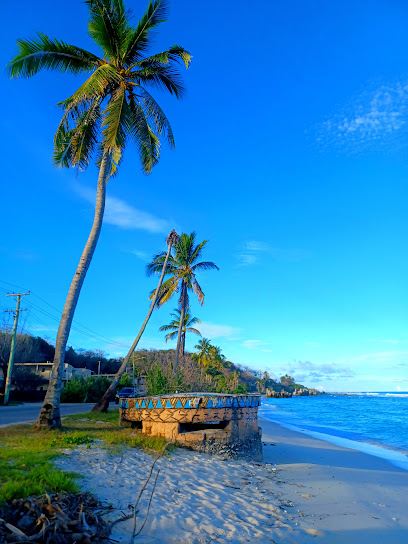
Anibare Boat Harbour Restaurant
Discover the flavors of Nauru at Anibare Boat Harbour Restaurant, a waterfront dining experience with fresh seafood and local cuisine.
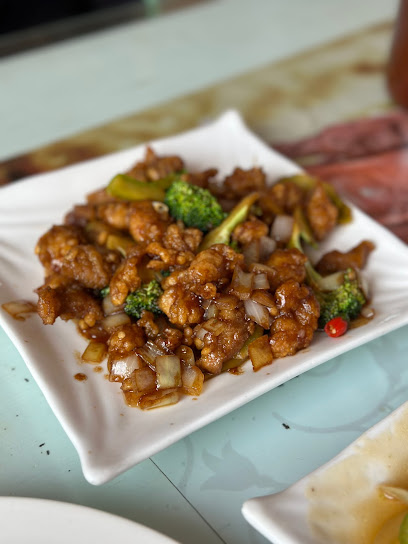
Nauru Fish Market
Discover the vibrant Nauru Fish Market, where fresh seafood meets local culture in a captivating island experience.
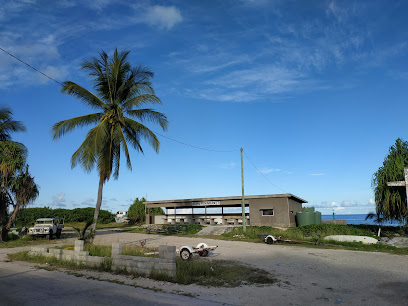
Milk Bar
Experience the charm of Milk Bar in Yangor, where delightful milk drinks and a cozy atmosphere create the perfect cafe experience for every traveler.

Naoero Central
Explore Naoero Central in Arijejen for all your travel essentials, from snacks to drinks, ensuring a seamless experience on your Nauru adventure.

AIA Grog bar
Experience the vibrant nightlife of Anabar at AIA Grog Bar, where local drinks and a laid-back atmosphere await every night.

Angel Grog Bar
Discover the heart of Nauru's nightlife at Angel Grog Bar, where vibrant drinks and a lively atmosphere await every visitor.

Anibare Harbour
Experience the tranquil beauty of Anibare Harbour in Nauru, a serene escape with stunning waters ideal for swimming and snorkeling.
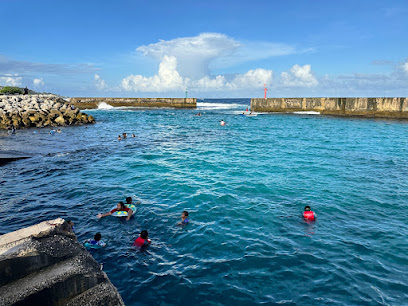
Convenience Store
Explore Anabar with ease at the local Convenience Store, your go-to spot for snacks, drinks, and travel essentials.

Local Phrases
-
- HelloIaorana
[yo-ra-na] - GoodbyeKaore
[ka-o-re] - YesE
[e] - NoAe
[ae] - Please/You're welcomeMaeva
[ma-e-va] - Thank youMauruuru
[mau-ru-u-ru] - Excuse me/SorryPardon
[par-don] - How are you?Eaha te huru?
[e-a-ha te hu-ru] - Fine. And you?Maitai. E teie oe?
[mai-tai. e te-e oe] - Do you speak English?Ua haere i te reo Māori?
[ua ha-e-re i te re-o ma-o-ri] - I don't understandAore au e haere i teie
[ao-re au e ha-e-re i tei-e]
- HelloIaorana
-
- I'd like to see the menu, pleaseE mea te menu, maru
[e me-a te me-nu, ma-ru] - I don't eat meatAore au e mea i te kai
[ao-re au e me-a i te kai] - Cheers!Manava
[ma-na-va] - I would like to pay, pleaseE mea te moni, maru
[e me-a te mo-ni, ma-ru]
- I'd like to see the menu, pleaseE mea te menu, maru
-
- Help!Awhina!
[a-whe-na] - Go away!Haere atu!
[ha-e-re a-tu] - Call the Police!Karanga ki te Pirihimana!
[ka-ran-ga ki te pi-ri-hi-ma-na] - Call a doctor!Karanga ki te doctor!
[ka-ran-ga ki te doc-tor] - I'm lostKua noho au
[ku-a no-ho au] - I'm illKua kino au
[ku-a ki-no au]
- Help!Awhina!
-
- I'd like to buy...E mea te hoko...
[e me-a te ho-ko] - I'm just lookingKua kite au
[ku-a ki-te au] - How much is it?E hia te moni?
[e hi-a te mo-ni] - That's too expensiveHe nui te moni
[he nu-i te mo-ni] - Can you lower the price?Ka taea e koe te whakaiti i te moni?
[ka ta-e-a e ko-e te fa-ka-i-ti i te mo-ni]
- I'd like to buy...E mea te hoko...
-
- What time is it?He aha te wa?
[he a-ha te wa] - It's one o'clockKotahi te haora
[ko-ta-hi te ha-o-ra] - Half past (10)E rima tekau ma tahi
[e ri-ma te-ka-u ma ta-hi] - MorningAta
[a-ta] - AfternoonAhiahi
[a-hi-a-hi] - EveningPō
[po] - YesterdayIneia
[i-ne-i-a] - TodayAianei
[ai-a-nei] - TomorrowĀpōpō
[a-po-po] - 1Tahi
[ta-hi] - 2Rua
[ru-a] - 3Toru
[to-ru] - 4Whā
[fa] - 5Rima
[ri-ma] - 6Ono
[o-no] - 7Whitu
[fi-tu] - 8Waru
[wa-ru] - 9Iwa
[i-wa] - 10Tekau
[te-ka-u]
- What time is it?He aha te wa?
-
- Where's a/the...?Kei hea te...
[ke-i he-a te] - What's the address?He aha te wāhitau?
[he a-ha te wa-hi-tau] - Can you show me (on the map)?Ka taea e koe te whakaatu ki ahau?
[ka ta-e-a e ko-e te fa-ka-a-tu ki a-ha-u] - When's the next (bus)?Āhea te wāhi kei te heke?
[a-a-he-a te wa-hi ke-i te he-ke] - A ticket (to ....)He tatai (ki ...)
[he ta-ta-i ki]
- Where's a/the...?Kei hea te...
History of Anibare
-
Anibare, a district in the eastern part of Nauru, has a rich history that dates back to the early Polynesian and Micronesian settlers. These early inhabitants were skilled navigators and fishermen who established small communities along the coast. They thrived on the abundant marine resources and developed unique cultural practices that are still evident today.
-
During the late 19th and early 20th centuries, Nauru came under the influence of various colonial powers, including Germany, Britain, and Australia. Anibare, like the rest of the island, saw significant changes during this period, including the introduction of Western education, religion, and administrative systems. The district's strategic location made it an important point of contact between the local population and colonial authorities.
-
In the early 20th century, the discovery of phosphate deposits transformed Nauru's economy and landscape. Anibare was no exception, as the district's land and resources were heavily utilized for mining operations. The extraction of phosphate brought significant wealth to the island but also led to environmental degradation and social upheaval. The legacy of this era is still visible in the district's altered terrain and the economic challenges faced by its residents.
-
Anibare, along with the rest of Nauru, was occupied by Japanese forces during World War II from 1942 to 1945. The district's strategic location made it a focal point for military activities and fortifications. The local population endured hardships, including forced labor and food shortages. After the war, Anibare played a role in the island's recovery and rebuilding efforts.
-
Nauru gained independence in 1968, marking a new chapter in the history of Anibare. The district has since experienced various developments, including infrastructural improvements and efforts to diversify the local economy. Tourism has emerged as a potential growth area, with Anibare's stunning beach and natural beauty drawing visitors from around the world. The district continues to balance tradition and modernity as it navigates its future.
-
Anibare is a hub of cultural activity, with its residents maintaining strong ties to traditional practices and customs. The district hosts various festivals and events that celebrate Nauruan culture, including traditional dance, music, and crafts. These cultural expressions provide insight into the rich heritage of Anibare and offer visitors a unique opportunity to experience the island's vibrant community life.
Anibare Essentials
-
Nauru is one of the world's smallest countries, and Anibare is located on its eastern coast. The only international airport is Nauru International Airport (INU) in Yaren District. From the airport, you can take a taxi to Anibare, which is roughly a 15-minute drive. There are no direct international flights to Nauru from all countries; you may need to transit through Australia or Fiji.
-
Given the small size of Nauru, transportation options are limited but sufficient. Taxis are available and are the most convenient way to get around. There is also a public bus service that circles the island, stopping at major districts including Anibare. Renting a car or scooter is another option, allowing you to explore the island at your own pace.
-
The official currency of Nauru is the Australian Dollar (AUD). Credit cards are generally accepted in larger establishments, but it's advisable to carry cash for smaller businesses and local markets. ATMs are available, but they can be limited, so it's prudent to bring enough cash for your stay.
-
Anibare is generally a safe area for tourists. However, standard travel precautions should still be taken. Avoid isolated areas at night and keep an eye on your belongings, especially at the beach or public places. There are no specific high-crime areas targeting tourists in Anibare.
-
In case of an emergency, dial 110 for police assistance and 111 for medical emergencies. The Republic of Nauru Hospital is located in the Yaren District and offers basic medical services. It's advisable to have travel insurance that covers medical emergencies. For minor health issues, there are pharmacies where you can purchase over-the-counter medications.
-
Fashion: Do dress modestly, especially when visiting local villages or religious sites. Avoid overly revealing clothing. Religion: Do respect local customs and traditions, particularly in religious settings. Public Transport: Do be courteous to other passengers and offer your seat to elderly individuals. Don't eat or drink on public transport. Greetings: Do greet people with a smile and a friendly 'Hello.' A handshake is also acceptable, although it's not always customary. Eating & Drinking: Do try local dishes and accept food offerings graciously. Don’t refuse hospitality, as it is considered impolite.
-
To experience Anibare like a local, visit the lively Anibare Beach, a popular spot for both tourists and locals. Try traditional Nauruan dishes like coconut fish and pandanus fruit. Engage with locals; they are often friendly and willing to share stories about their culture and history. Don’t miss the sunrise over the Anibare Bay, which offers a breathtaking view.
Trending Landmark in Anibare
Nearby Cities to Anibare
-
Things To Do in Ijuw
-
Things To Do in Buada
-
Things To Do in Uaboe
-
Things To Do in Anabar
-
Things To Do in Yaren
-
Things To Do in Boe
-
Things To Do in Denigomodu
-
Things To Do in Aiwo
-
Things To Do in Kosrae
-
Things To Do in Mili
-
Things To Do in Majuro
-
Things To Do in Aur
-
Things To Do in Lata
-
Things To Do in Auki
-
Things To Do in Tulagi







